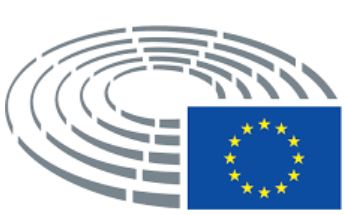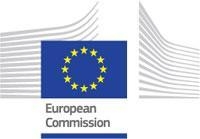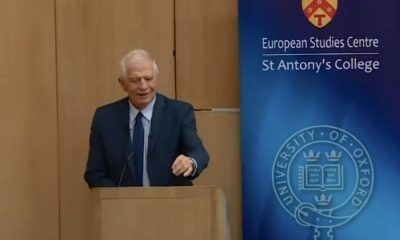EU
אי.יו.-ברייט יבערבליק ווייזט אייראפעער שטיצן די קאַטער פון די קאָנפֿערענץ וועגן דער צוקונפֿט פון אייראָפּע

 |  |
The European Parliament and the European Commission are today releasing the first-ever Eurobarometer survey conducted jointly for the two institutions. The Special Eurobarometer survey on the Future of Europe was carried out between 22 October and 20 November 2020 in the 27 EU member states.
The survey, released ahead of the signing of the Joint Declaration on the Conference on the Future of Europe, reveals that the vast majority (92%) across all Member States demand that citizens' voices are ‘taken more into account in decisions relating to the future of Europe'.
The Conference on the Future of Europe aims to do precisely that: It will create a new public forum for an open, inclusive, transparent and structured debate with Europeans around the issues that matter to them and affect their everyday lives.
- די קאָנפֿערענץ וועגן דער צוקונפֿט פון אייראָפּע
Three-quarters of Europeans consider that the Conference on the Future of Europe will have a positive impact on democracy within the EU: 76% agree that it represents significant progress for democracy within the EU (25% ‘totally agree' and 51% ‘tend to agree'), with a clear majority supporting this view in every EU Member State.
Respondents thought that people from all walks of life should be actively involved (51%); with 47% saying young people should have an important role; as well as national governments (42%) and academics, experts, intellectuals and scientists (40%).
Just over half of Europeans (51%) would like to get involved themselves, with Irish respondents being the most enthusiastic (81%) followed by Belgians (64%), Luxembourgers (63%) and Slovenians (63%).
- Citizens' Voice in the EU
While voting in European elections is clearly regarded (by 55% of respondents) as the most effective way of ensuring voices are heard by decision-makers at EU level, there is very strong support for EU citizens having a greater say in decisions relating to the future of Europe. Of the 92% believing that EU citizens' voices should be taken more into account, 55% ‘totally agree', 37% ‘tend to agree'. Only 6% disagree with the statement.
- די צוקונפֿט פון אייראָפּע
Six in ten Europeans agree that the Coronavirus crisis has made them reflect on the future of the European Union (19% ‘totally agree' and 41% ‘tend to agree') while 39% disagree with this (23% ‘tend to disagree' and 16% ‘totally disagree').
Respondents were asked to choose developments they wanted to see for the future of Europe: Having comparable living standards (35%) and stronger solidarity among Member States (30%) are the two developments most cited. Europeans also prioritise the development of a common health policy (25%) and comparable education standards (22%).
- Assets and challenges
Europeans consider that the EU's respect for democracy, human rights and the rule of law (32%) and its economic, industrial and trading power (30%) are its main assets. The EU's respect for democracy, human rights and the rule of law is ranked as the most important (or joint most important) asset in 14 countries, and this viewpoint is especially prominent in Sweden where 58% see this as a key asset. The EU's economic, industrial and trading power is ranked as the most important (or joint most important) asset in nine countries, led by Finland (45%) and Estonia (44%).
Climate change is clearly regarded as the main global challenge affecting the future of the EU, with 45% of Europeans selecting this as the main challenge. The second and third most mentioned issues, cited by similar proportions of Europeans, are terrorism (38%) and health-related risks (37%). Forced migration and displacement is the fourth most mentioned challenge, by just over a quarter of Europeans (27%).
הינטערגרונט
This Special Eurobarometer survey n° 500 “Future of Europe” (EB94.1) was carried out between 22 October and 20 November 2020 in the 27 EU Member States and was commissioned jointly by the European Commission and the European Parliament. The survey was conducted face-to-face and completed with online interviews where necessary as a result of the pandemic. Some 27,034 interviews were conducted in total.
מער אינפֿאָרמאַציע
Special Eurobarometer 500 “Future of Europe”
European Parliament - Eurobarometer service
שער דעם אַרטיקל:
-

 קאנפליקטןקסנומקס טעג צוריק
קאנפליקטןקסנומקס טעג צוריקקאַזאַכסטאַן טרעט אריין: ברידגינג די צעטיילונג פון אַרמעניאַ-אַזערביידזשאַן
-

 מאָטאָרינגקסנומקס טעג צוריק
מאָטאָרינגקסנומקס טעג צוריקפיאַט 500 ווס מיני קופּער: אַ דעטאַילעד פאַרגלייַך
-

 פּראָסט פרעמד און סעקוריטי פּאָליטיקקסנומקס טעג צוריק
פּראָסט פרעמד און סעקוריטי פּאָליטיקקסנומקס טעג צוריקאי.יו. פרעמד פּאָליטיק טשיף מאכט פּראָסט סיבה מיט וק צווישן גלאבאלע קאַנפראַנטיישאַן
-

 קאָוויד-19קסנומקס טעג צוריק
קאָוויד-19קסנומקס טעג צוריקאַוואַנסירטע שוץ קעגן בייאַלאַדזשיקאַל אַגענץ: דער איטאַליעניש הצלחה פון ARES BBM - Bio Barrier Mask



























